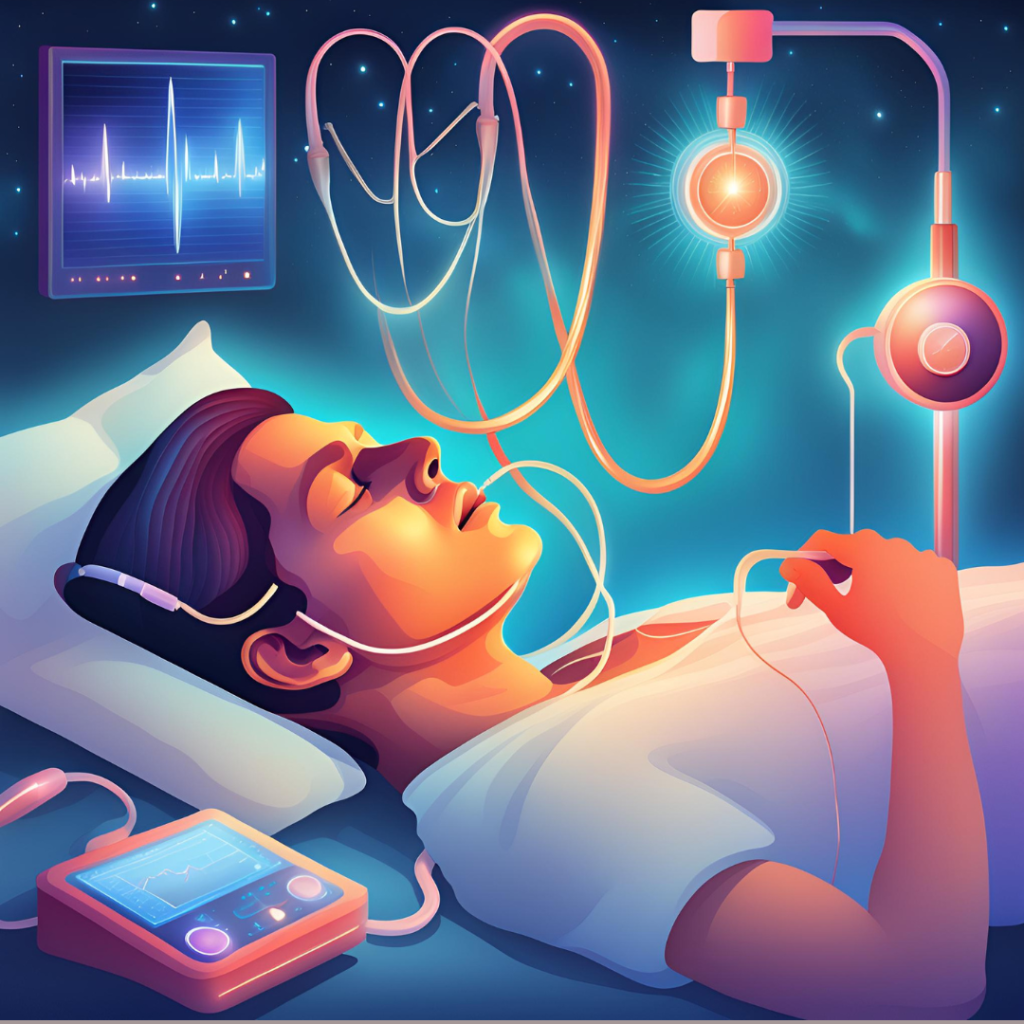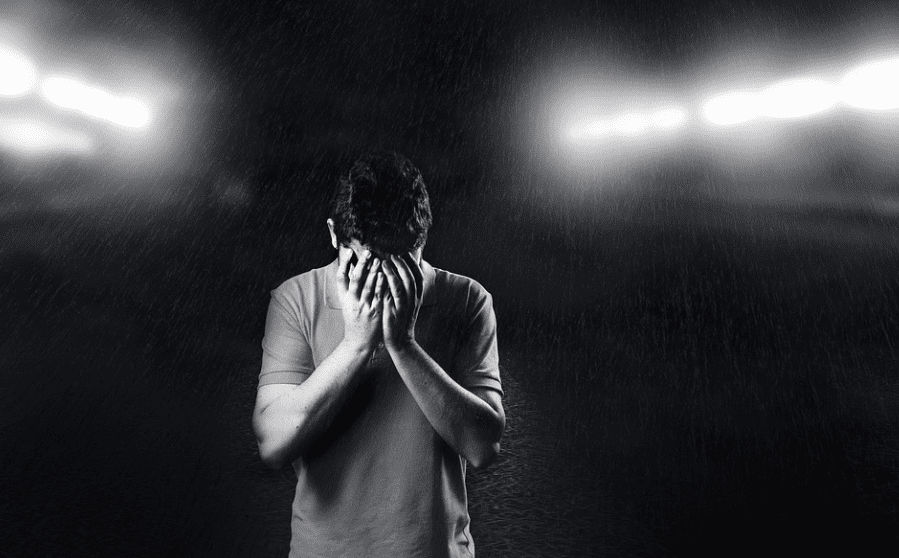Polysomnography: A Key Diagnostic Tool for Uncovering Psychiatric Causes of Insomnia
Bali Mental Health Clinic – Educational Media
Insomnia, or the inability to fall or stay asleep, is a common problem that can severely affect an individual’s quality of life. While many cases of insomnia stem from poor sleep habits or temporary stress, chronic insomnia may point to underlying psychiatric conditions. At Bali Mental Health Clinic, our approach is holistic and evidence-based, and we understand that long-standing sleep issues can often be linked to deeper mental health concerns. One of the most powerful tools we utilize to uncover these hidden causes is *polysomnography (PSG)*, a comprehensive sleep study that reveals how sleep patterns relate to mental health.
This article will explore how polysomnography helps psychiatrists identify underlying psychiatric disorders contributing to insomnia, its role in guiding effective treatments, and why it is a vital resource in addressing chronic sleep disturbances.
Understanding Polysomnography: What Is It?
Polysomnography is an advanced overnight test that monitors various physiological parameters during sleep. Patients typically spend the night in a sleep lab where they are connected to sensors that track brain activity, breathing patterns, muscle movements, heart rate, and more. These measurements provide a detailed picture of the sleep stages and cycles, helping clinicians detect disruptions and irregularities.
The key components of polysomnography include:
- – *Electroencephalography (EEG)*: Monitors brain wave activity to assess sleep stages (REM and non-REM sleep).
- – *Electrooculography (EOG)*: Measures eye movements, crucial for identifying REM sleep.
- – *Electromyography (EMG)*: Tracks muscle tone to detect restlessness or abnormal movements.
- – *Electrocardiography (ECG)*: Records heart rate and rhythm during sleep.
- – *Respiratory sensors*: Assess breathing patterns to detect potential issues like sleep apnea.
- – *Pulse oximetry*: Measures blood oxygen levels, ensuring adequate oxygen intake during sleep.
Polysomnography captures data from multiple body systems simultaneously, providing a comprehensive view of a patient’s sleep. For patients experiencing insomnia due to psychiatric conditions, PSG can identify patterns or abnormalities that point toward an underlying mental health issue.
The Relationship Between Sleep and Psychiatric Disorders
Sleep and mental health are deeply interconnected. Sleep disorders, especially insomnia, are common symptoms of psychiatric conditions such as depression, anxiety, post-traumatic stress disorder (PTSD), and bipolar disorder. Conversely, chronic insomnia can worsen mental health, creating a cycle that is difficult to break without proper diagnosis and intervention.
Chronic insomnia caused by psychiatric conditions often involves both difficulty falling asleep (sleep onset insomnia) and staying asleep (sleep maintenance insomnia). For instance, someone with depression might struggle with early-morning awakenings, while anxiety may cause difficulty falling asleep due to racing thoughts. The ability to pinpoint the specific sleep disruptions through polysomnography allows psychiatrists to make more precise diagnoses and tailor treatment plans accordingly.
Polysomnography and Psychiatric Disorders Causing Insomnia
Polysomnography has proven highly effective in identifying sleep abnormalities associated with several psychiatric disorders. Here are some common psychiatric conditions and the sleep disturbances that PSG can reveal:
1. Depression
Depression is one of the most common mental health issues associated with insomnia. Sleep disturbances in patients with depression are often characterized by fragmented sleep, frequent awakenings, and early morning waking. Polysomnography can detect several distinctive features in the sleep patterns of depressed individuals, including:
- *Reduced slow-wave sleep (SWS)*: Deep, restorative sleep is often diminished in individuals with depression, which can leave them feeling tired despite spending enough time in bed.
- *Shortened REM sleep latency*: Depressed patients tend to enter REM sleep (the dream phase) earlier than normal, often within 45 minutes of falling asleep, compared to the usual 90 minutes.
- *Increased REM density*: Patients with depression often experience more frequent eye movements during REM sleep, which may correlate with heightened emotional dysregulation during sleep.
These sleep patterns are telltale signs that help psychiatrists not only confirm a diagnosis of depression but also assess its severity. At Bali Mental Health Clinic, we use this data to tailor treatments, whether it be through therapy, medication, or a combination of both.
2. Anxiety Disorders
Anxiety, especially generalized anxiety disorder (GAD), is commonly linked to insomnia. Individuals with anxiety may lie awake for hours due to racing thoughts or a heightened sense of alertness. Polysomnography can identify key sleep disturbances related to anxiety disorders, such as:
- *Increased sleep onset latency*: Anxiety often causes a prolonged time to fall asleep due to excessive worry and hyperarousal.
- *Sleep fragmentation*: PSG may show frequent awakenings or restless sleep, as anxiety can keep the body in a state of heightened alertness even during rest.
- *Reduced sleep efficiency*: Sleep efficiency, the ratio of time spent asleep to time spent in bed, tends to be lower in individuals with anxiety. This means patients may spend long periods awake or in light sleep stages.
By analyzing these patterns, polysomnography provides clear evidence of how anxiety is affecting sleep, enabling clinicians to develop more effective treatment strategies, such as cognitive-behavioral therapy for insomnia (CBT-I), mindfulness-based therapies, or medication to manage anxiety symptoms.
3. Post-Traumatic Stress Disorder (PTSD)
Patients with PTSD often experience intense nightmares, flashbacks, or hyperarousal that severely disrupt their sleep. PSG plays a crucial role in understanding how trauma-related symptoms impact sleep architecture. In individuals with PTSD, polysomnography can reveal:
- *Increased REM sleep activity*: PTSD is associated with more frequent and vivid dreaming during REM sleep, often linked to nightmares or flashbacks.
- *Increased sleep arousals*: Patients may frequently awaken throughout the night, contributing to sleep fragmentation and poor sleep quality.
- *Reduced sleep efficiency*: Like in anxiety disorders, individuals with PTSD may have a lower sleep efficiency, meaning that their sleep is less restorative.
Understanding these disruptions allows clinicians at Bali Mental Health Clinic to incorporate trauma-focused therapies such as eye movement desensitization and reprocessing (EMDR) or prolonged exposure therapy, alongside sleep interventions, to improve both sleep quality and trauma symptoms.
4. Bipolar Disorder
Bipolar disorder is characterized by mood swings ranging from manic to depressive episodes, each affecting sleep in different ways. During manic phases, patients may experience reduced need for sleep, while depressive phases are often accompanied by hypersomnia or insomnia. Polysomnography helps detect these bipolar-related sleep abnormalities by showing:
- *Reduced total sleep time*: During manic episodes, patients may sleep for just a few hours and not feel fatigued, leading to a significant reduction in overall sleep duration.
- *Increased sleep variability*: PSG can detect large fluctuations in sleep duration and quality between manic and depressive phases, offering a deeper understanding of the patient’s mood cycling.
- *Alterations in REM sleep*: Both manic and depressive episodes in bipolar disorder may disrupt REM sleep patterns, with some individuals showing increased REM activity during depressive phases.
By mapping out these irregular sleep patterns, PSG data aids in managing sleep hygiene and regulating mood fluctuations, often leading to a more balanced treatment approach involving mood stabilizers and lifestyle interventions.
Why Is Polysomnography Important for Psychiatric Treatment?
Polysomnography offers unique insights into the relationship between psychiatric disorders and sleep. By objectively measuring sleep patterns, PSG helps to:
- *Diagnose underlying conditions*: Insomnia is often a symptom of a deeper psychiatric issue. PSG helps confirm or rule out disorders such as depression, anxiety, PTSD, or bipolar disorder.
- *Tailor treatment plans*: By identifying specific sleep disruptions, polysomnography allows for more targeted interventions, whether through medications, therapy, or a combination of approaches.
- *Monitor treatment progress*: PSG can be used to assess how well a treatment is working by comparing pre-treatment and post-treatment sleep patterns, giving both the patient and clinician valuable feedback on the effectiveness of interventions.
- *Enhance overall well-being*: By addressing both the insomnia and its psychiatric roots, polysomnography-guided treatment can improve not only sleep quality but also overall mental health.
Conclusion
At Bali Mental Health Clinic, we understand the vital role that sleep plays in maintaining mental health. Polysomnography is a powerful tool in helping us uncover the underlying psychiatric causes of insomnia, allowing us to provide more effective and individualized care. Whether you are struggling with anxiety, depression, PTSD, or another mental health condition, understanding your sleep patterns through PSG is often the first step toward reclaiming restful nights and emotional well-being.
If you or a loved one is suffering from chronic insomnia, we encourage you to consult with our team of specialists to explore how polysomnography can assist in understanding and treating your sleep issues. With the right diagnosis and treatment, it is possible to break the cycle of insomnia and regain control of your sleep and mental health.






